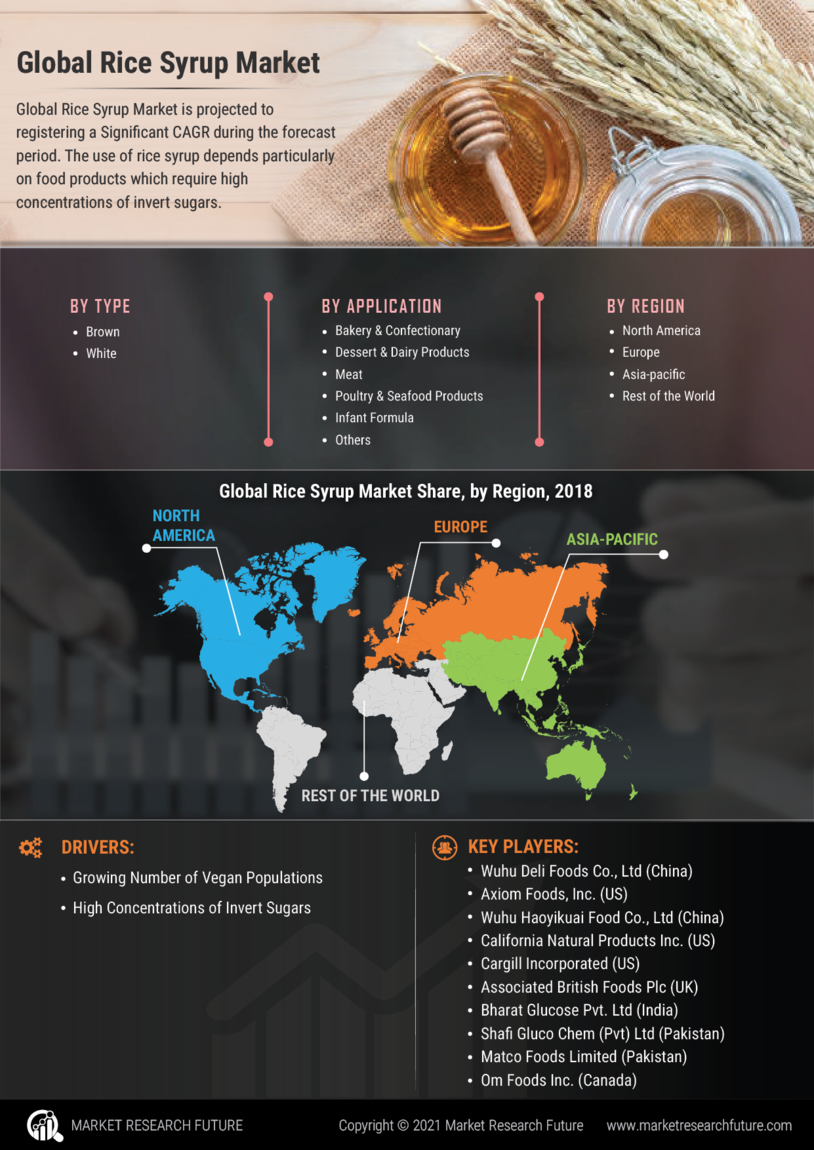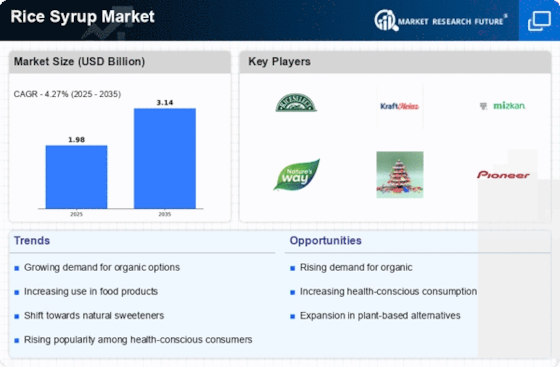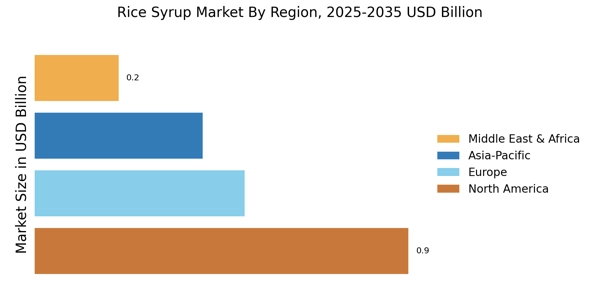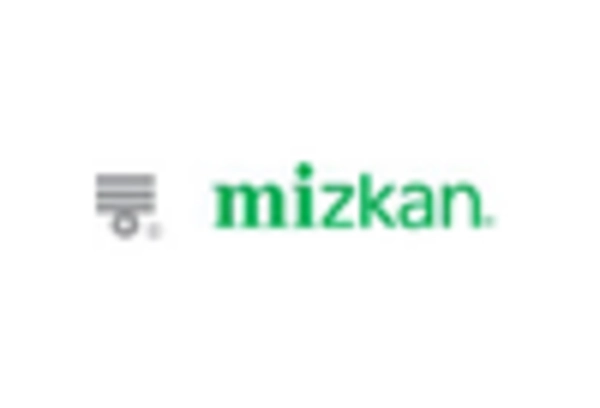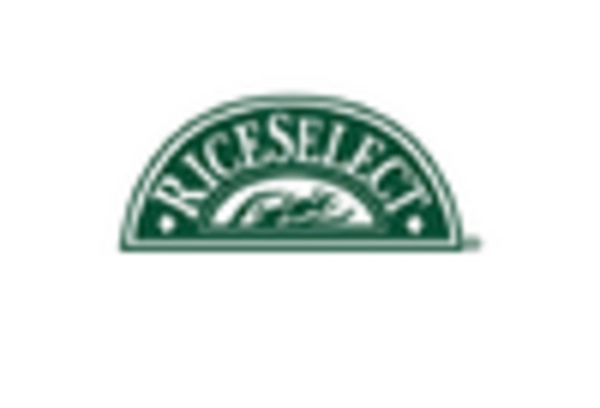Rise of Plant-Based Diets
The growing adoption of plant-based diets is significantly influencing the Rice Syrup Market. As more consumers transition to vegetarian and vegan lifestyles, the demand for plant-based sweeteners has escalated. Rice syrup, being derived from whole grains, aligns perfectly with the principles of plant-based nutrition. This trend is not merely a fad; it reflects a fundamental shift in consumer preferences towards sustainable and ethical food choices. Market analysis indicates that the plant-based food sector is expected to reach substantial growth, with rice syrup playing a pivotal role as a natural sweetener. This alignment with plant-based diets positions the rice syrup market favorably for future expansion.
Innovations in Food Technology
Innovations in food technology are playing a crucial role in shaping the Rice Syrup Market. Advances in processing techniques and product formulations are enabling manufacturers to enhance the quality and functionality of rice syrup. For instance, the development of enzymatic processes allows for the production of rice syrup with varying sweetness levels, catering to diverse consumer preferences. Furthermore, the integration of rice syrup into functional foods and beverages is on the rise, as manufacturers seek to create products that offer health benefits beyond basic nutrition. This trend towards innovation is likely to drive growth in the rice syrup market, as companies strive to meet evolving consumer demands and capitalize on new opportunities.
Health-Conscious Consumer Trends
The Rice Syrup Market is experiencing a notable shift as consumers increasingly prioritize health and wellness. This trend is driven by a growing awareness of the adverse effects of refined sugars, prompting many to seek healthier alternatives. Rice syrup, being a natural sweetener with a lower glycemic index, appeals to those looking to manage their blood sugar levels. According to recent data, the demand for natural sweeteners, including rice syrup, has surged, with projections indicating a compound annual growth rate of approximately 5% over the next few years. This shift towards health-conscious choices is likely to bolster the rice syrup market, as consumers gravitate towards products that align with their dietary preferences and health goals.
Increased Demand for Organic Products
The Rice Syrup Market is witnessing a surge in demand for organic products, driven by consumers' desire for clean and sustainable food options. Organic rice syrup, produced without synthetic pesticides or fertilizers, is becoming increasingly popular among health-conscious consumers. This trend is supported by data indicating that the organic food market has been growing at a rate of approximately 8% annually. As consumers become more discerning about their food sources, the preference for organic rice syrup is likely to increase, thereby enhancing its market presence. This demand for organic options not only reflects changing consumer attitudes but also presents opportunities for producers to innovate and expand their offerings.
Diverse Applications Across Industries
The versatility of rice syrup is a significant driver for the Rice Syrup Market. It finds applications not only in food and beverages but also in cosmetics, pharmaceuticals, and nutraceuticals. In the food sector, rice syrup is utilized as a sweetener in various products, including baked goods, energy bars, and sauces. The increasing trend of clean label products has further propelled the demand for rice syrup, as manufacturers seek natural ingredients. Additionally, the cosmetic industry is incorporating rice syrup for its moisturizing properties, indicating a broader acceptance of this ingredient. The diverse applications suggest a robust growth trajectory for the rice syrup market, as industries continue to explore its potential.
